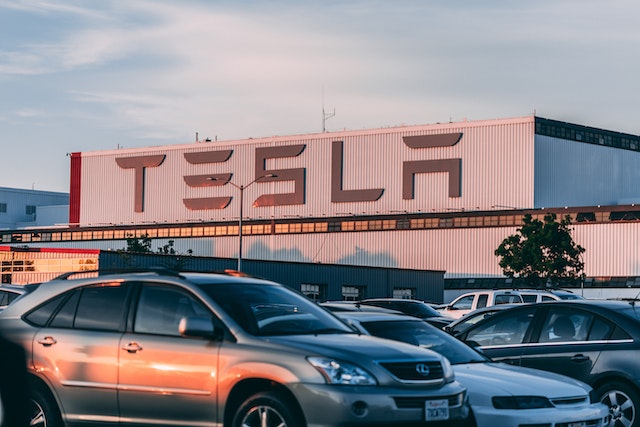As we move further into the 21st century, the world is starting to see a shift towards more sustainable and eco-friendly modes of transportation. One of the most significant changes in the automotive industry has been the rise of electric cars. Electric vehicles (EVs) have become increasingly popular in recent years as people become more environmentally conscious and look for alternatives to gasoline-powered vehicles.
So, how do electric cars stack up against gasoline in 2023? Let’s take a closer look.
Environmental Impact
One of the most significant advantages of electric cars is their environmental impact. Unlike gasoline-powered vehicles, electric cars emit no pollutants or greenhouse gases. In a world where climate change is becoming an ever more pressing issue, this is a crucial factor to consider. As the electricity grid becomes cleaner and renewable sources of energy become more widely adopted, the environmental benefits of electric vehicles will only increase.
On the other hand, gasoline-powered vehicles produce significant amounts of carbon dioxide and other pollutants that contribute to air pollution and climate change. Gasoline cars are responsible for a large portion of the world’s greenhouse gas emissions and are a significant contributor to the ongoing climate crisis.
Range and Charging
Range anxiety has always been one of the biggest challenges faced by electric vehicle manufacturers. The fear of running out of power and being stranded on the side of the road has been a significant barrier to the adoption of electric cars. However, in 2023, the range of electric cars has improved significantly. Many new EVs now have a range of over 300 miles on a single charge, making them much more practical for daily use.
In addition, charging infrastructure has improved dramatically. Fast charging stations are becoming more common, and many EV owners can now recharge their cars in as little as 30 minutes. With the widespread adoption of electric cars, charging infrastructure is only going to get better.
Cost
The cost of electric cars has historically been a significant barrier to their adoption. However, in recent years, the cost of EVs has been steadily decreasing, making them more accessible to the average consumer. In 2023, the cost of electric cars is expected to continue to decrease as battery technology improves and economies of scale are realized.
Furthermore, the cost of owning an electric car is typically lower than that of a gasoline-powered vehicle over the long term. Electric cars have lower maintenance costs, require fewer repairs, and are generally cheaper to operate than gasoline cars.
Performance
Another advantage of electric cars is their performance. Electric motors provide instant torque, which means that EVs can accelerate faster than gasoline-powered vehicles. In addition, electric cars are generally quieter and smoother than their gasoline counterparts.
However, gasoline cars still have some advantages in terms of performance. Gasoline engines have a higher energy density than batteries, which means that they can travel further on a single tank of gas than an electric car can on a single charge. Gasoline cars are also more convenient for long-distance travel, as they can be refuelled quickly at any gas station.
One example of an electric car that is gaining popularity in 2023 is the KIA XCeed. This compact crossover is an all-electric version of the popular KIA XCeed, and it offers an impressive range of up to 280 miles on a single charge. The KIA XCeed also boasts fast-charging capabilities, with an 80% charge taking just 54 minutes.
The KIA XCeed review: its performance is also noteworthy, with its electric motor delivering 201 horsepower and 291 lb-ft of torque. This allows the car to accelerate from 0 to 60 mph in just 6.8 seconds. Additionally, the car’s regenerative braking system helps to extend its range by recovering energy that would otherwise be lost during braking.
The KIA XCeed also features a range of advanced safety and technology features, including a 10.25-inch touchscreen display, adaptive cruise control, lane-keeping assist, and automatic emergency braking. These features make the XCeed an attractive option for drivers who value safety and convenience.
The KIA XCeed is a great example of how electric cars are continuing to improve in 2023, offering impressive performance, range, and features that make them a viable alternative to gasoline-powered vehicles. As more car manufacturers continue to invest in electric technology, we can expect to see more and more electric cars like the KIA XCeed on the road in the coming years.
Conclusion
Overall, electric cars have come a long way since their introduction. They offer significant environmental benefits, improved range and charging, decreased costs, and impressive performance. While gasoline cars still have some advantages in terms of range and convenience, electric cars are becoming an increasingly viable alternative for many drivers.
In 2023, the adoption of electric cars is expected to continue to grow, as governments around the world implement policies to encourage their use and battery technology continues to improve. As the benefits of electric cars become more apparent, we can expect to see more and more drivers making the switch to electric vehicles in the coming years. Lease cars have become increasingly popular in recent years, as more people are looking for flexible and affordable ways to drive a new vehicle without the long-term commitment of ownership.

